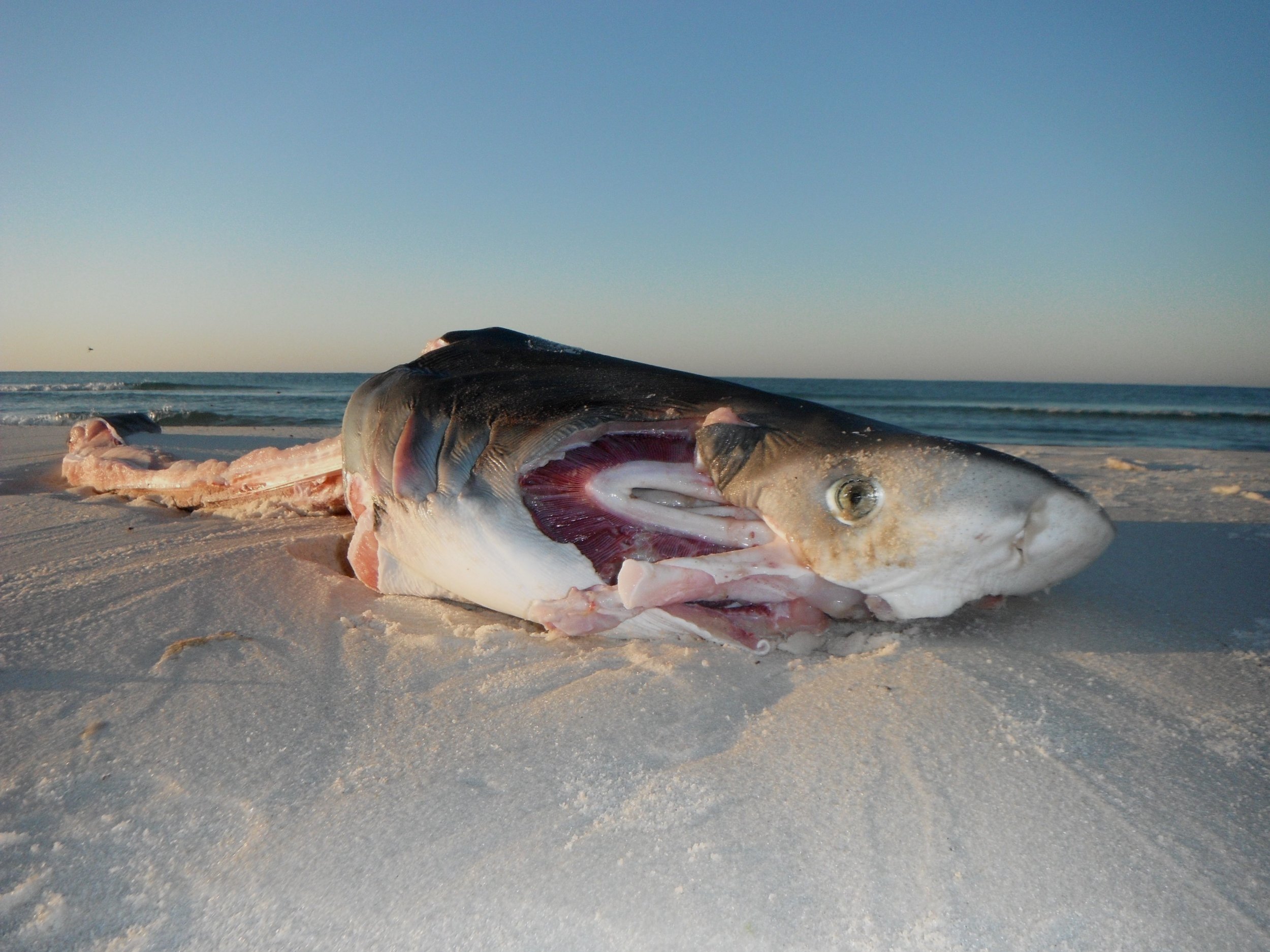
Study:
100 million sharks killed—each year.
Our new study shows that 63-273 million sharks are killed each year.
Where Did This Number Come From?
You’ve probably heard the shocking statistic that “100 million sharks are killed each year”. But where does this number come from? Until now, there were only rough estimates, but no one had fully crunched the numbers.
In our study, “Global Catches, Exploitation Rates, and Rebuilding Options for Sharks” (also known as the "100 Million Sharks Killed Each Year" paper), we took a deep dive into the data. Here's how we did it:
The Data Breakdown:
We gathered every piece of data available on shark catches, mortality rates, and practices like shark finning (where only the fins are kept, and the rest of the shark is discarded). By analyzing the data from 2000 and 2010, we combined reports of both legal and illegal catches, discards (sharks caught and thrown back), and finning practices.
After factoring in the survivability of discarded sharks (most don’t make it), we estimated that in 2000 and 2010, around 1.44 million and 1.41 million metric tons of sharks were killed, respectively. From this, we translated the numbers into annual mortality estimates and found that approximately 100 million sharks were killed in 2000 and 97 million in 2010. The actual number could range from 63 to 273 million sharks each year, depending on data uncertainties.
The Impact of Shark Mortality:
We also looked at the sustainability of these rates by comparing shark mortality with global shark biomass. What we found was alarming: the rate of shark exploitation was between 6.4% and 7.9% per year, which is higher than the average reproductive rate for many shark species. This means that shark populations are declining faster than they can reproduce, pushing them toward extinction.
Why Does It Matter?
These findings are critical. Sharks play a vital role in keeping marine ecosystems healthy and balanced. Without them, entire food webs can collapse, leading to long-term damage across ocean systems.
Shark declines also hurt coastal communities and economies that depend on ocean tourism, like diving, snorkeling, and eco-tours. In many places, live sharks are worth far more to local economies than dead ones.
A drastic reduction in shark mortality is essential—not just to protect sharks themselves, but to sustain ocean health, coastal economies, and the millions of people who depend on them.
What’s Changed Since the Paper Was Published?
The paper’s findings have sparked meaningful change:
Anti-Finning Policies: Many countries have now strengthened laws against shark finning, ensuring sharks are landed intact and preventing the brutal practice that decimates populations.
Shark Sanctuaries: New protected areas have been created where sharks are safe from overfishing. These sanctuaries help maintain healthy shark populations, which in turn support overall ocean biodiversity.
CITES Listings: The paper has also influenced the inclusion of threatened shark species in the Convention on International Trade in Endangered Species (CITES), helping regulate the global trade of these vulnerable species.
The road ahead:
While these positive steps are encouraging, much more work is needed to make sure they’re having the intended effect. Stronger protections and more research are needed to safeguard shark and ray populations—and, by extension, ocean health.
What’s the Big Takeaway?
New strategies are needed to reduce shark mortality. The most effective solutions are still unknown. We recommend trying multiple approaches, measuring their impact in an ongoing and timely way (using eOceans app), and focusing efforts where they deliver the greatest results.
This shark research is ongoing in eOceans.
Use the eOceans mobile app or dashboard to upload shark observations to existing shark projects, or create your own.

